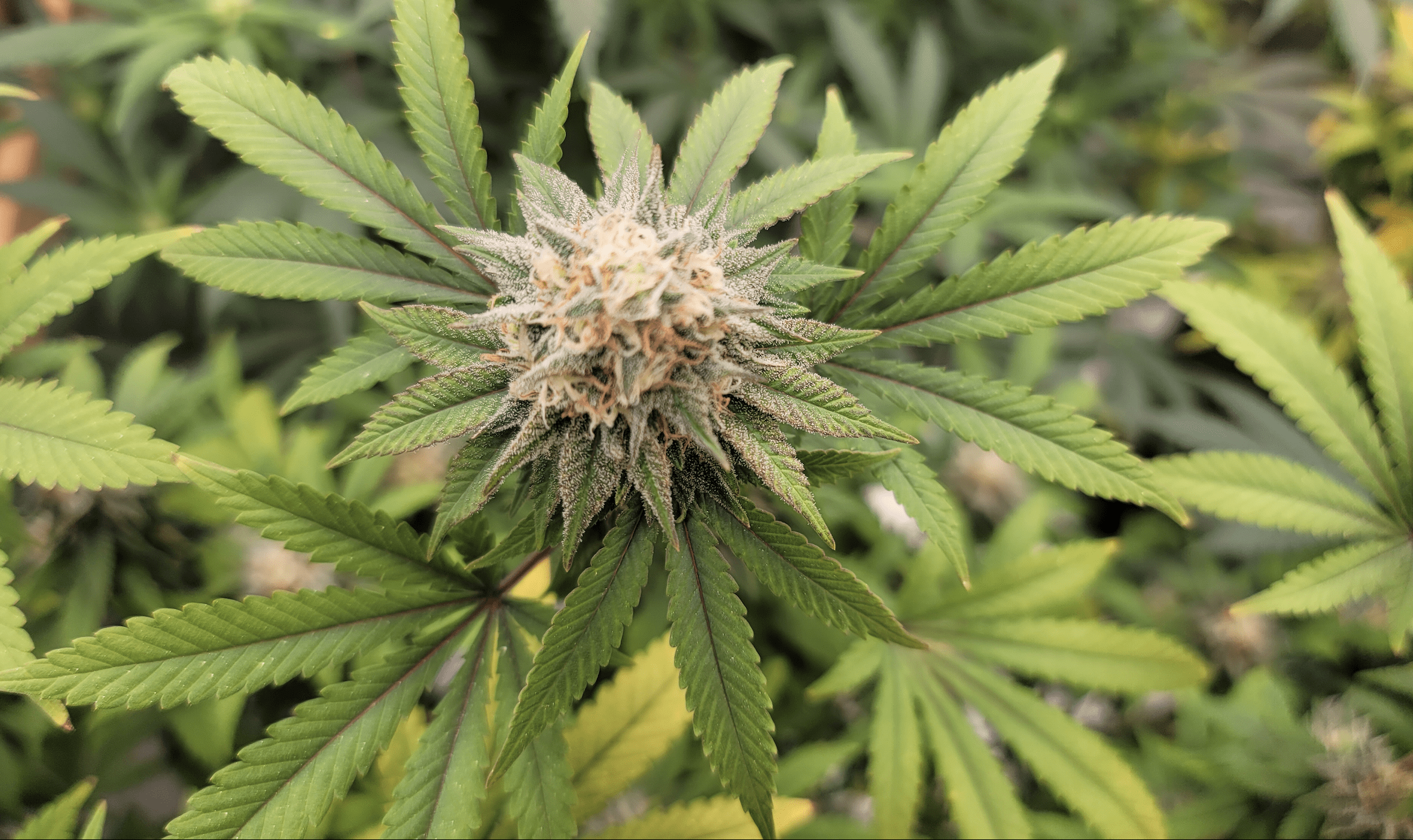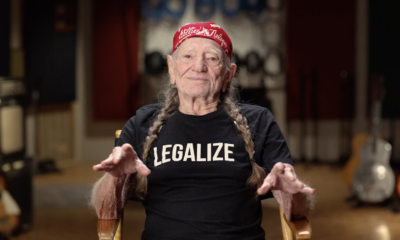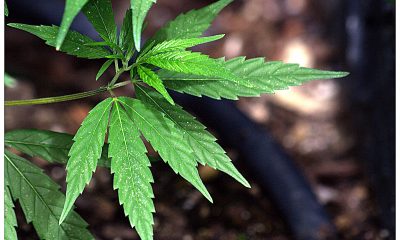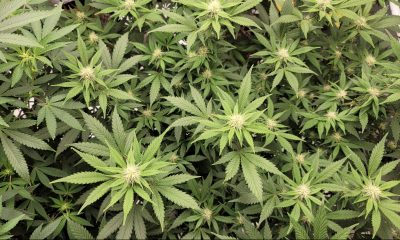Politics
Texas Activists Turn In Nearly 50,000 Signatures To Put Marijuana Decriminalization On The Dallas Ballot

Texas activists have turned in nearly 50,000 signatures to put a local marijuana decriminalization initiative on the ballot in Dallas this November.
The campaign Ground Game Texas, which has led multiple local cannabis reform measures in cities across the state, announced on Monday that they were submitting the signatures to City Hall. They first launched the signature drive in January.
If the petitions are verified and voters approve the measure, possession of up to four ounces of marijuana would be decriminalized in Dallas, which is the third largest city in Texas by population.
While activists say they have collected substantially more than the 35,000 signatures needed to put the measure on the ballot, some members of the City Council are hoping to streamline the process by acting legislatively, with plans to introduce the proposal at a hearing on Wednesday. Councilmember Chad West said he will be sponsoring the measure, in part, to save the city money that’s associated with verifying signatures in the ballot initiative process.
Either way it is potentially enacted, the Dallas measure would prevent police from making arrests or issuing citations for Class A or B misdemeanor cannabis possession offenses, unless it’s part of a high priority felony investigation for narcotics or violent crime.
Further, the measure says “Dallas police shall not consider the odor of marijuana or hemp to constitute probable cause for any search or seizure.”
The city manager and chief of police would be required to prepare quarterly reports on the implementation of the policy change, with information about any marijuana possession arrests or citations that would be submitted to the Dallas City Council.
“The Dallas Freedom Act is just that—it’s part of a larger movement that rejects division, creates the change we all deserve, and in true Texan spirit, unapologetically demands it now,” Ground Game Texas Executive Director Catina Voellinger said in a press release. “From our signatures on the petition to our collective votes on the ballot, this is our power, our voice, our moral receipt—this is our Texas movement.”
Tristeza Ordex, campaign manager with the group, said that “having this on the ballot is important to me because I think about the many ways that a run-in with the police can affect my life.”
“Many veterans fall into the criminal justice system because of minor possession charges,” she said. “As a USMC veteran and someone who struggles with PTSD and anxiety, marijuana has been key in my ability to manage my mental health.”
The Dallas marijuana campaign is being endorsed by the local AFL-CIO.
This comes about a month after activists in Lockhart turned in what they say are more than enough signatures to put another marijuana decriminalization initiative on the local ballot this year.
In a setback for advocates, voters in Lubbock rejected a separate cannabis reform initiative last month, which followed Texas Attorney General Ken Paxton (R) filing lawsuits against five other Texas cities with voter-approved decriminalization laws.
A Texas district judge dismissed the lawsuit against Austin’s voter-approved cannabis decriminalization law earlier this month.
Last week, officials in one of those Texas cities, Elgin, settled their lawsuit with the state attorney general, with the local government pointing out that decriminalization was never implemented there despite voter approval of the initiative.
Meanwhile, a Texas Democratic candidate for the state House announced this month that she’s collecting signatures to put a local marijuana decriminalization initiative on the local ballot in Bastrop this November.
Gov. Greg Abbott (R) has lashed out against the municipal cannabis reform efforts.
“Local communities such as towns, cities and counties, they don’t have the authority to override state law,” the governor said late last month. “If they want to see a different law passed, they need to work with their legislators. Let’s legislate to work to make sure that the state, as a state, will pass some of the law.”
He said it would lead to “chaos” and create an “unworkable system” for voters in individual cities to be “picking and choosing” the laws they want abide by under state statute.
Abbott has previously said that he doesn’t believe people should be in jail over marijuana possession—although he mistakenly suggested at the time that Texas had already enacted a decriminalization policy to that end.
Paxton, the state attorney general, used more inflammatory rhetoric when his office announced in January that it was suing five cities over local laws decriminalizing marijuana that voters approved, vowing to overrule the “anarchy” of “pro-crime extremists” who advocated for the reform.
In general, the measures that have already been enacted in Austin, Denton, Elgin, Harker Heights, Killeen and San Marcos prevent police from making arrests or issuing citations for Class A or B misdemeanor cannabis possession offenses, unless it’s part of a high priority felony investigation for narcotics or violent crime.
Shortly after voters in Harker Heights approved their measure, the city council overturned the ordinance over concerns that it conflicted with state law. But activists collected signatures for another initiative and successfully repealed the repeal last year—though officials have still refused to move forward with implementing the will of voters.
In November, Ground Game released a report that looked at the impacts of the marijuana reform laws. It found that the measures will keep hundreds of people out of jail, even as they have led to blowback from law enforcement in some cities. The initiatives have also driven voter turnout by being on the ballot, the report said.
Another cannabis decriminalization measure that went before voters in San Antonio last May was overwhelmingly defeated, but that proposal also included unrelated provisions to prevent enforcement of abortion restrictions.
—
Marijuana Moment is tracking more than 1,500 cannabis, psychedelics and drug policy bills in state legislatures and Congress this year. Patreon supporters pledging at least $25/month get access to our interactive maps, charts and hearing calendar so they don’t miss any developments.
![]()
Learn more about our marijuana bill tracker and become a supporter on Patreon to get access.
—
At the state-level last year, the Texas House of Representatives passed a series of bills to decriminalize marijuana, facilitate expungements and allow chronic pain patients to access medical cannabis as an opioid alternative. But they ultimately stalled out in the Senate, which has been a theme for cannabis reform measures in the conservative legislature over several sessions.
The House passed similar cannabis decriminalization proposals during the past two legislative sessions, in 2021 and 2019.
Separately, a Texas Democratic senator brought the issue of marijuana legalization to the Senate floor last May, seeking to attach to an unrelated resolution an amendment that would’ve allowed Texans to vote on ending prohibition at the ballot box. But the symbolic proposal was ultimately shut down. Lt. Gov. Dan Patrick (R) agreed to another member’s point of order, deeming the cannabis amendment not germane to the broader legislation.
Three in five Texans, including a plurality of Republicans, support legalizing marijuana, according to a survey released this month.
Another poll released in 2022 found that nearly three in four Texas voters (72 percent) support decriminalizing marijuana. More than half (55 percent), meanwhile, said they’re in favor of broader legalization. Seventeen percent said it shouldn’t be legal at all.
Last March, the same institution similarly showed that a majority of Texas voters feel that the state’s marijuana laws should be “less strict.”
Photo courtesy of Mike Latimer.
















